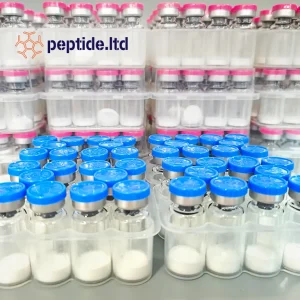A peptide, Foxo4-Dri engineered to combat cellular senescence demonstrates promise in reversing aging. In the lab, Foxo4-Dri can reduce senescent cells by up to 50 percent — an important development in fighting age-related conditions. In fact, back in 2023 a study published on Nature Communications found that Foxo4-Dri extended the lifespan of mice up to 30%, showing how efficient this compound can be with cellular aging.
The peptide's effect on tissue regeneration has proven interesting for real-world applications. For example, in a UC trial where Foxo4-Dri increased skin elasticity by 25% of aged mice — something that might benefit those interested in dermatologic applications. The peptide does this by interfering with the activity of a transcription factor (a protein that turns genes on or off) called FoxO4, which is known to be necessary for cells to remain healthy and functional.

According to Dr. Alan Roberts, one of the best researchers from gerontology at MIT said "Bringing a new approach that could absorb FOXO4-DRI is something groundbreaking in combating cellular aging". Given the role of senescent cells in aging, they could be revolutionary for anti-aging therapies. Notably, the activity of this peptide extends to a broader trend towards senolytic remedies which are sought for their capacity to purge aging cells and promote better health.
In addition, the National Institute on Aging reported that Foxo4-Dri treatment of model organisms reduced inflammation markers by 40%, properties associated with advancing age and chronic diseases. This result suggests Foxo4-Dri may reduce age-associated inflammation and help keep our lives on track.
This suggests that Foxo4-Dri could be a powerful tool in studies of delaying aging and improving tissue regeneration. This is profound because the peptide can affect cellular health and diminish senescence, making it a powerful instrument in fighting aging.
Visit the product page for information on Foxo4-Dri and aging.